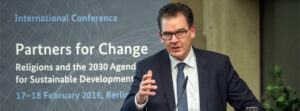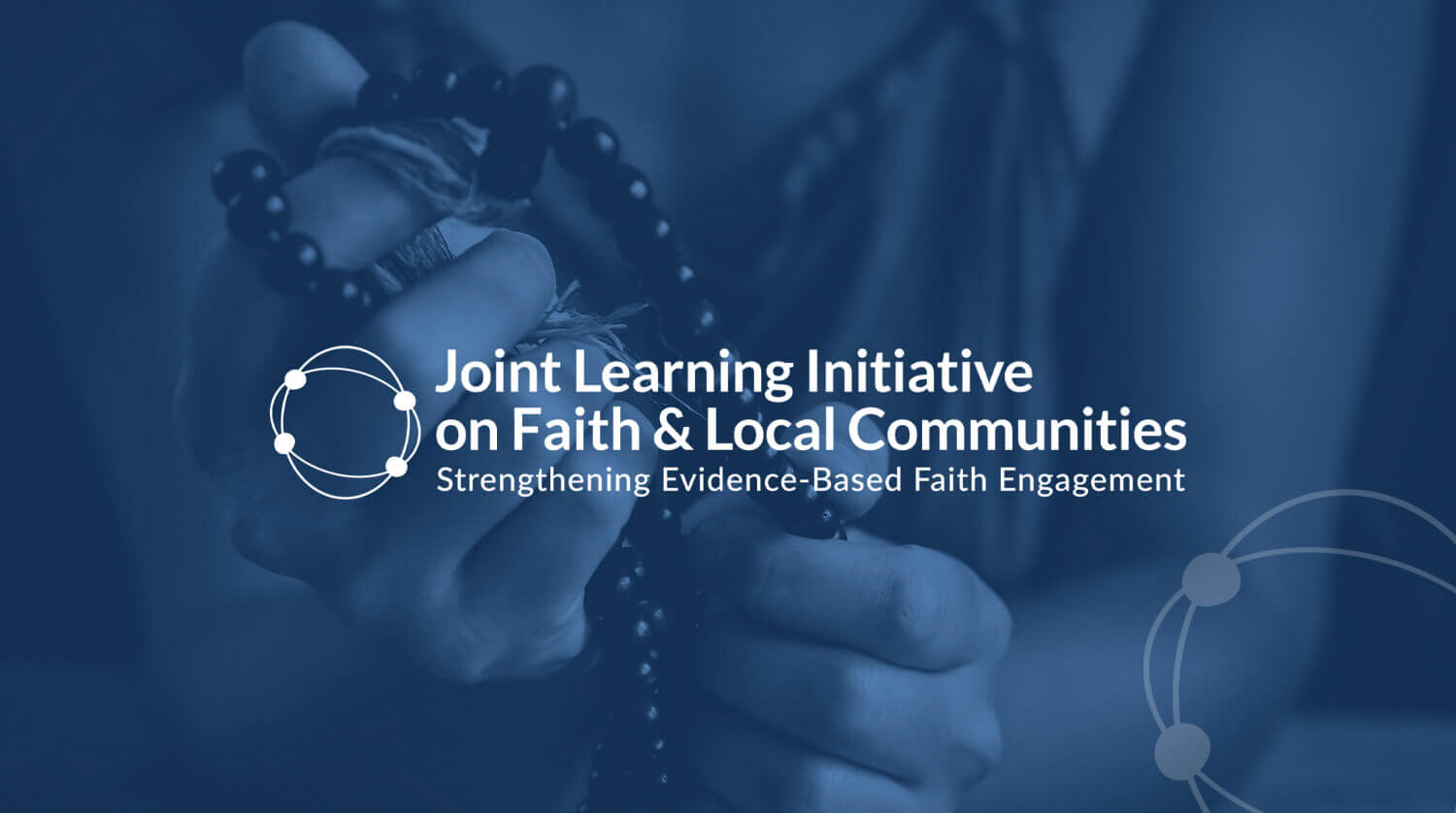
http://www.bmz.de/20160217-1en
Berlin – At an international conference entitled “Partners for Change – Religions and the 2030 Agenda”, Minister Gerd Müller of BMZ presented on February 17, 2016 the first-ever strategy on the role of religion and faith communities in German development policy.
Minister Müller said, “Without the involvement of the world’s religions, we will not be able to meet the challenges the world is facing. Especially in these times when religion is used as an argument to justify terrorism and violence, we need to improve cooperation with all religious communities. We must not leave the field clear for the extremists. Rather, we need to strengthen those who are working for peace and development.”
The strategy Religious Communities as Partners for Development Cooperation is the outcome of a broad national and international dialogue which Minister Müller launched right after he assumed office. Together with civil society, religious communities and international organisations such as the United Nations and the World Bank, the BMZ drew up the strategy to serve as guidance in the future for systematically taking cooperation with religious communities into account in the BMZ’s project work.
“A values-based development policy takes the contribution of religion seriously. Wherever we can achieve more by working together, we will increase our cooperation with religious actors. We have laid down clear criteria in our strategy to guide us in this endeavour,” said Müller.
In order to give this effort a push at the international level, too, the BMZ founded the International Partnership on Religion and Sustainable Development (PaRD), a joint endeavour with other donors and international organisations, for example the US, the UK, Sweden, the United Nations and the World Bank. The purpose of this Partnership is to develop common ideas on how to improve cooperation with faith communities. The Partnership is also open to civil society organisations.
PaRD will be supported by an international secretariat with offices in Bonn and Berlin.






